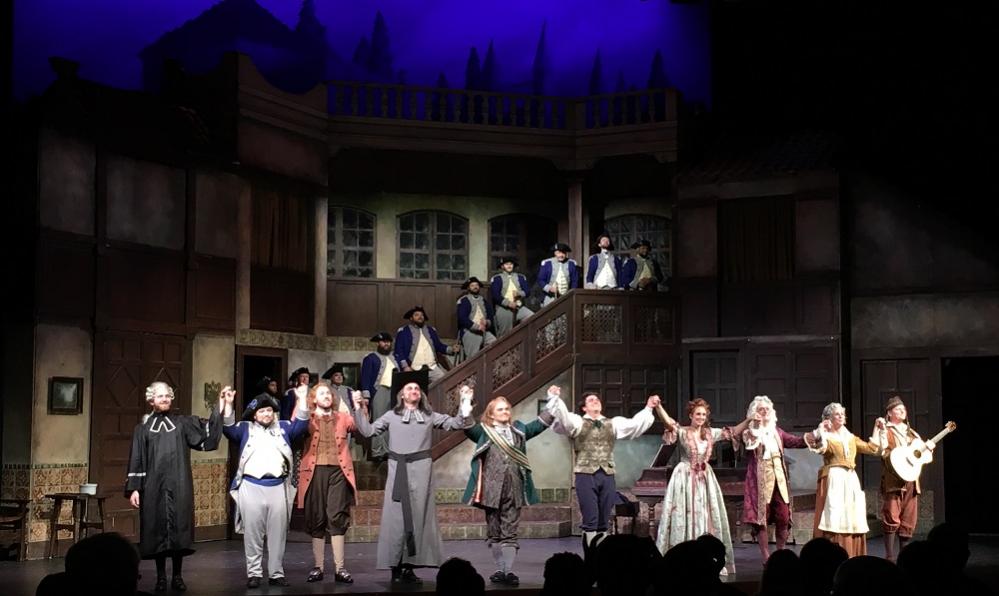Opera Lively
“David Pershall is an extraordinary Figaro – actually one of the best we’ve ever seen. Huge voice with excellent projection and a beautiful timbre, agility for the patter songs, great acting skills, and comedic flare are all attributes exhibited by this outstanding artist, not to forget that he is quite handsome. His performance alone is enough to call this show “highly recommended” and “not to be missed””
Classical Voice North Carolina
“David Pershall was a terrific Figaro, with a hearty voice and a persona to match, taking possession of the stage.”
News & Record
“David Pershall was the handsome handyman barber, Figaro, whose famous opening aria brought down the house”
Voix des Arts
“There is no more familiar entrance aria in opera than Figaro’s Act One cavatina ‘Largo al factotum della città,’ and with his crowd-pleasing performance of the number Pershall introduced his Figaro, one by whom the top Gs were not feared. Pershall’s singing was a reminder of a bygone era in which ‘big sing’ baritones like Robert Merrill and Nicolae Herlea included Figaro in their repertoires. In the ebullient duet with the Conte, the baritone voiced ‘All’idea di quel metallo’ incisively, his Figaro’s ideas seeming to genuinely be extemporaneously engendered by the clinking of coins in his hand. Then, implementing his plan to facilitate her rendezvous with the Conte, he joined Rosina in a rollicking account of their duetto, singing ‘Di Lindoro il vago oggetto siete voi, bella Rosina’ with irrepressible conviviality… [Pershall’s] technique is equal to even Figaro’s most intricate vocal filigree, as he elatedly demonstrated in the Act One finale. As Figaro’s stratagems teetered on the brink of disaster in Act Two, Pershall emphasized the barber’s resourcefulness, taking charge with the authority of a Hollywood director—authority that the lovers under his protection were often too distracted by their canoodling to heed. The seat-of-his-trousers bravado of his vocalism in the quintetto was diverting, and his Figaro’s euphoric extolling of the efficacy of his handiwork in the terzetto truly earned the audience’s laughter. With such a skilled Figaro at the center of the action, there was never any doubt that all would end well, but one of the most endearing aspects of Pershall’s performance was its spontaneity. Still, not even the most genial Figaro succeeds solely with his acting of the part, and it was Pershall’s vibrant, ruggedly masculine singing that made the strongest, most lasting impression.”

Figaro in “Barbiere” bows @ Greensboro Opera